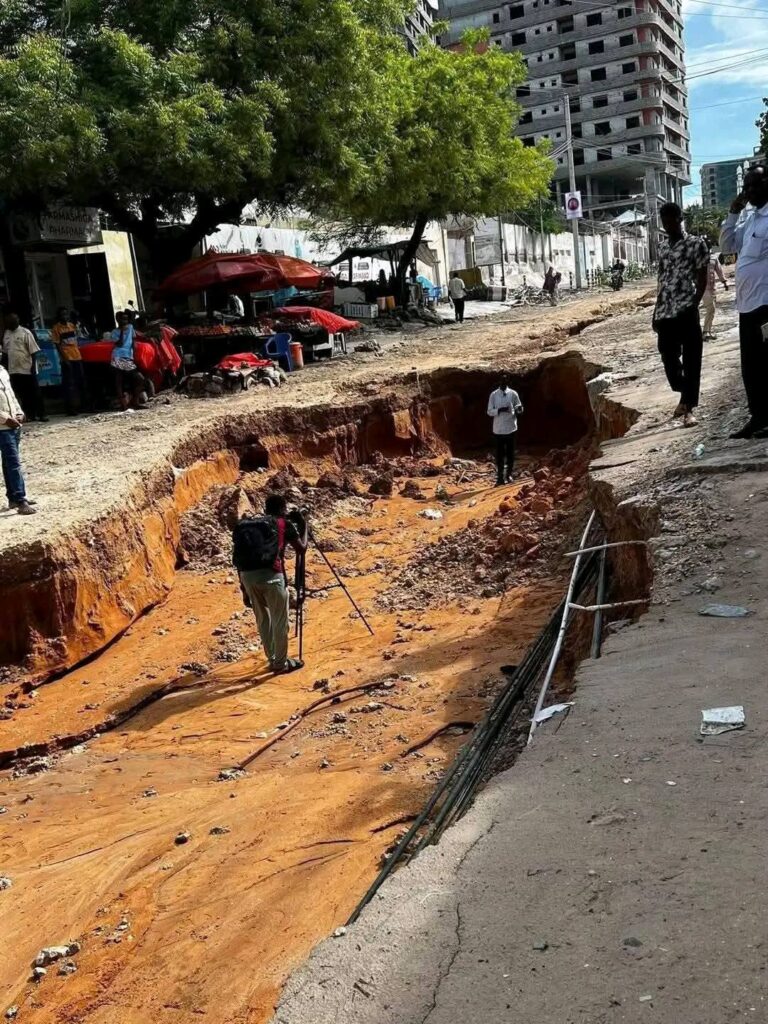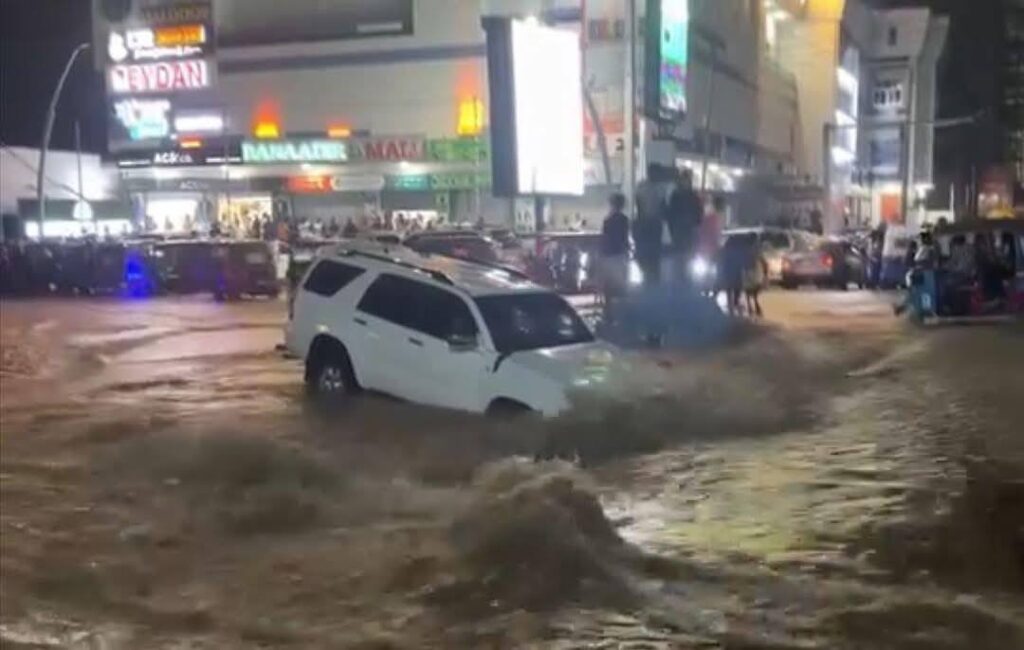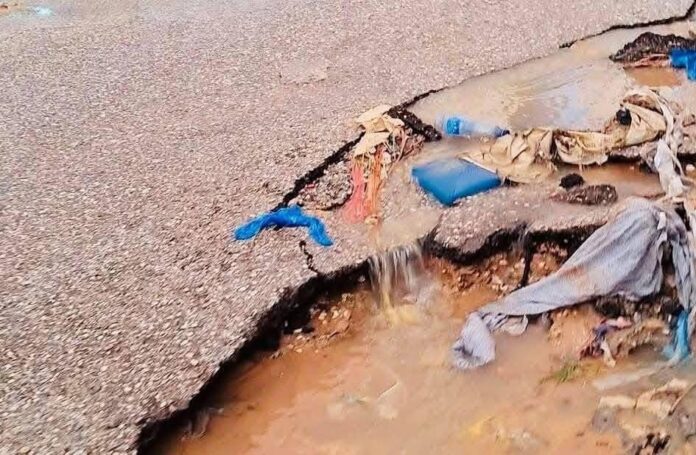MOGADISHU (Kaab TV) – The Banadir Regional Administration has announced the extent of the destruction caused by heavy rains that struck the capital, Mogadishu, sweeping away roads and destroying homes on Friday (May 9).
Spokesperson for the Banadir Regional Administration, Salah Hassan Omar, told reporters that seven people lost their lives, including two women.
“Seven people have died, two of whom were women. There were also children among those who perished in the floods that inundated parts of the city,” said the Banadir administration spokesperson.
The administration stated that 200 families have been displaced after floodwaters entered their homes, leaving them without shelter.
Up to six newly constructed roads were also washed away, according to Salah Omar.
“The Banadir Regional Administration and the Mogadishu Municipality have been engaged in rescue efforts since last night to assist people affected by the flooding. We have also deployed vehicles to the damaged roads,” the spokesperson added.
Civilians and opposition politicians have accused the Banadir administration of failing to adequately respond to the crisis that has impacted vulnerable populations.

The leader of the Wadajir Party, MP Abdirahman Abdishakur Warsame, called on President Hassan Sheikh Mohamud to abandon the controversial election project and instead focus on addressing the needs of flood-affected residents in Mogadishu.
“Postpone the one person, one vote — Mr. President, first do something for this city,” Abdirahman Abdishakur wrote on his Facebook page.
On Friday night, torrential rains measuring 115 millimeters fell over Mogadishu within just eight hours, overwhelming drainage systems and causing floodwaters to inundate many neighborhoods of the capital.
The floods damaged key roads, crippling transportation and access to essential public services.

This disaster is part of a broader trend of worsening climate impacts in Somalia, where vulnerable communities are bearing the brunt of extreme weather events.
Somalia continues to experience a series of climate shocks—including prolonged droughts followed by severe flooding—that have devastated agriculture, displaced large populations, and sharply increased the risk of food insecurity.


